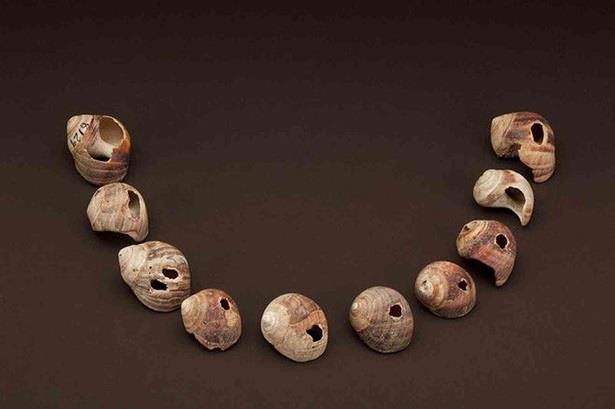Morocco has commemorated Independence Day in style showcasing one of the world’s oldest pieces of jewellery discovered at the famous Bismoun Cave in Essaouira, a port city on Morocco’s Atlantic coast, Kenyan newspaper "Daily Nation" points out on Saturday.
The famous Bismoun Cave archaeological discoveries are on show in Chellah space in Rabat in what authorities have described “as the unveiling of human history as a whole”, the paper adds.
Minister of Culture, Youth and Communication, Mr Mehdi Bensaid, and the research team witnessed the presentation at the exhibition, in the presence of HM the King's advisor, Andre Azoulay, and ambassadors of various countries, who came to see the discoveries for the first time.
The search team, made up of Moroccan and foreign scientists, discovered 32 marine pieces made of a seashell called Tritia Gibbosula, formerly known as Nassarius Gibbosulus, making up one of the world’s oldest pieces of jewellery so far, the publication says.
The seashells were most likely used by humans as ornamental necklaces, which indicates a very ancient symbolic behaviour, according to researchers.
Quoted by the newspaper, Bensaid said the ministry of Culture arranged the event in celebration of Independence Day – 18 November – noting that this great discovery in Essaouira reflects the important history of human civilisation’s early years in North Africa, and precisely in Morocco.
He added that “such discoveries contribute to the unveiling of human history as a whole, and makes Moroccans aware of the ample treasures the Kingdom has to offer the world.”
Abdeljalil Bouzoukar, professor of higher education at the National Institute of Archaeology and Heritage in Rabat, said that “this discovery carries great symbolism.”
Bouzoukar added that “symbolic tools, unlike artefacts, can only be communicated through language,” and therefore these symbols are linked to language, which suggests that we are at the cusp of language introduced in the history of human civilisation.
The Moroccan researcher explained that such discoveries “highlight the beginning of the formation of collective identities,” as the spread of such marine seashells dates back 35,000 years.






